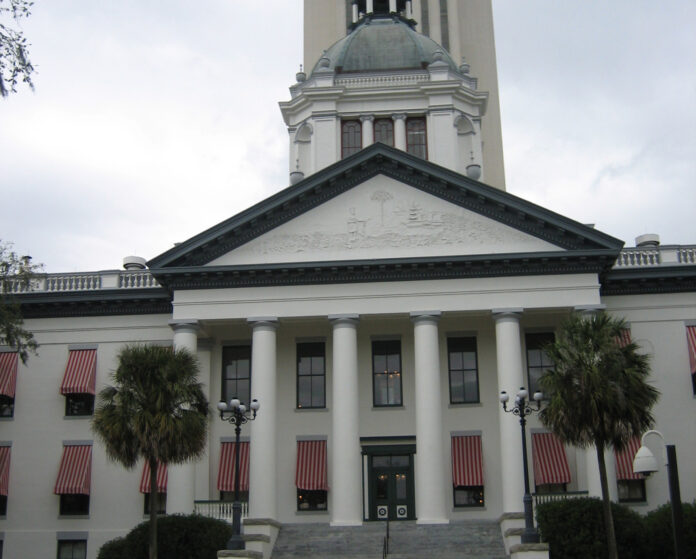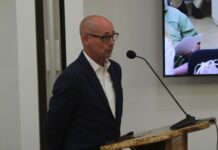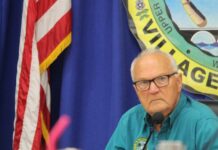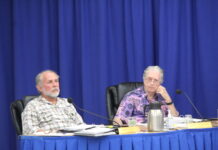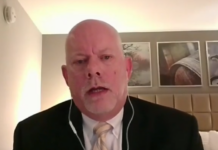The Florida Legislature’s 60-day session kicks off in Tallahassee on Tuesday, March 7. Legislators will consider policy changes to the state’s affordable housing crisis. They will mull a variety of funding requests and a number of key proposals from Gov. Ron DeSantis.
Hundreds of bills filed by legislators in the House and Senate range from a single-use plastic bag pilot project to banning dogs from sticking their heads out the window of a moving vehicle. For several weeks, House and Senate committees gathered to hear bill proposals and vote to move them through the process.
LATEST SENATE AFFORDABLE HOUSING BILL SAFEGUARDS 1,300 UNITS FOR THE KEYS
A housing bill with massive implications for Florida and the Keys is making its way through Senate committees. Sponsored by state Sen. Alexis Calatayud, a Republican representing parts of Miami-Dade County, legislation would change policies and provide hundreds of millions of dollars in funding for affordable housing.
Importantly to the Keys, language recently included in Senate Bill 102 safeguards the 1,300 affordable housing units then-Florida Gov. Rick Scott initiated in May 2018 following Hurricane Irma. Under the initiative, renters of the units would need to evacuate within a 48-hour window of an impending storm.
The units went through a legal battle, as the Third District Court of Appeals (Third DCA) ruled the “early evacuation” requirement violated Florida Statute 380.0552(9)(a)2, which requires comprehensive plans of cities within the Florida Keys Area of Critical State Concern (ACSC), established in 1974, to “maintain a hurricane evacuation clearance time for permanent residents of no more than 24 hours.”
A request for the Third DCA to re-hear the case was denied, and the state Supreme Court on Jan. 13 rejected an escalation of the appeal, seemingly leaving a legislative fix as the only viable option.
Of all the municipalities that lost units in the stunning Aug. 3, 2022 reversal – 300 each for Marathon, Islamorada and unincorporated Monroe County, with another 100 split between Key Colony Beach and Layton – the fate of the legislation is most crucial for Marathon, as it is the only city that has already allocated its units. As its own Area of Critical State Concern outlined in 1984, Key West’s units were protected.
Per language within Senate Bill 102, “The Department of Economic Opportunity’s Keys Workforce Housing Initiative, approved by the Administration Commission on June 13, 2018, is considered an exception to the evacuation time constraints of section 380.0552(9)(a)2., Florida Statutes. A comprehensive plan amendment approved by the Department of Economic Opportunity to implement the initiative is hereby valid and the respective local governments may adopt local ordinances or regulations to implement such plan amendment.”
The proposed bill went before the Senate Appropriations Committee on Feb. 22. Legislation would need the legislature’s approval before it goes to DeSantis for approval or veto.
Key West and Islamorada have accepted, but not allocated, their units, while Monroe County has yet to fully accept the units, given the years-long legal challenges from environmental attorney Richard Grosso on behalf of residents in Key West, Islamorada and Marathon. In a Feb. 9 interview with the Keys Weekly, Grosso said the 24-hour limit is there for a really good reason; it’s there to protect the people of the Keys.”
“The idea that it’s only a good idea until we can’t develop any more, and that it’s no longer important, is just incredibly reckless and dangerous. It flies in the face of the reality of the real-world limits to development in the Keys. … This is continued pursuit for development at all costs,” he said.
Asked if he had a message for Marathon residents whose living situations hang in the balance with the fate of the 1,300 units, Grosso had a strong response.
“My message? What’s Marathon’s message to those people?” he said. “It’s not our responsibility that somebody was giving legal advice that it’s okay to build these units when they’re legally disputed. That wasn’t us.”
IS THIS THE YEAR FOR MOONEY’S RENTAL ASSISTANCE BILL?
State Rep. Jim Mooney is proposing a bill for the second straight year that would give the option for landlords and tenants to enter into agreements for a fee in lieu of security deposit. Most landlords require first and last months’ rent plus a security deposit. For many renters, it’s a challenge to secure the thousands of dollars for move-in.
Per the proposal, tenants have the choice to stay with the fee throughout the course of the rental, if their landlord provides the fee in lieu of the security deposit option. The tenant can terminate the monthly fee any time and instead pay the full security deposit, according to legislation. By paying the monthly fee, tenants could have the opportunity to accumulate enough money to fully pay the security deposit.
“If the tenant decides after 6 months or a year, they’ve got a bonus and want to pay the $2,000 security deposit and last month’s rent, they’re clear to go and the fee is removed,” Mooney said. “This is an option to get in the front door initially.”
A tenant who pays a security deposit upfront could get that money back under current security deposit rules, so long as there’s no damage to the apartment. That money is required to be secured in a certain kind of bank account.
Those who choose to pay the monthly fee, however, wouldn’t get that money back. Money collected by the landlords through the fee can be used at their discretion, such as for insurance.
House members on the Civil Justice Subcommittee approved the bill via a 13-4 vote on Feb. 9. Legislation was referred to the Judiciary Committee for consideration. Last year, Mooney’s bill passed through the House but didn’t garner approval from the Senate.
KEEPING AN EYE ON FUNDING REQUESTS FOR THE KEYS
Last year, the Florida Keys received a little more than $50 million for water quality projects, installation of new water main and affordable housing, among other purposes. This session, Keys officials are hoping for that same level of funding — if not more.
Kate DeLoach is a lifelong Keys resident who works as a lobbyist with The Southern Group. Last year, she was able to help the Florida Keys Aqueduct Authority secure $20 million to replace aging transmission lines. DeLoach said there will be a similar funding request this session.
“I’m telling people it’s our sewer system 2.0,” DeLoach told the Keys Weekly. “It’s a big project, and we’re chipping away at that by bringing in state dollars.”
DeLoach is also hoping to secure more money for an exterior hardening project at the Harry S. Truman Little White House in Key West. Last year, the museum received $250,000 for interior wall repair and strengthening the structure for a storm.
A total of $1.9 million secured through the state legislature supported 27 Keys affordable housing projects through local Habitat for Humanity organizations. DeLoach is hoping to have more success securing another round of appropriations for critical housing for the local workforce.
DeSantis’ budget proposal includes $20 million for the Florida Keys Stewardship Act. But Keys officials are hoping funding, which supports critical nearshore water projects and acquisition of environmentally-sensitive land, is included in the state Department of Environmental Conservation’s budget every year. A bill filed by Mooney and state Sen. Ana Maria Rodriguez would provide annual funding for the Stewardship Act.
If legislation passes this session, the Stewardship Act funds would be granted through a pool of roughly $1 billion from the state’s Land Acquisition Trust Fund. Everglades restoration projects and South Florida Water Management and St. Johns River Water Management districts receive annual allocations from the trust fund. It’s funded by documentary stamp tax revenue, or a tax on a mortgage, lien or other indebtedness filed or recorded in Florida.
“There’s something particularly special about the marine environments of the Florida Keys. That’s the pitch we usually make,” Lisa Tennyson, county legislative affairs director, told the Keys Weekly during an interview in February. “There’s a lot of competition for this special source of funding. We think we’re deserving of that.”
















